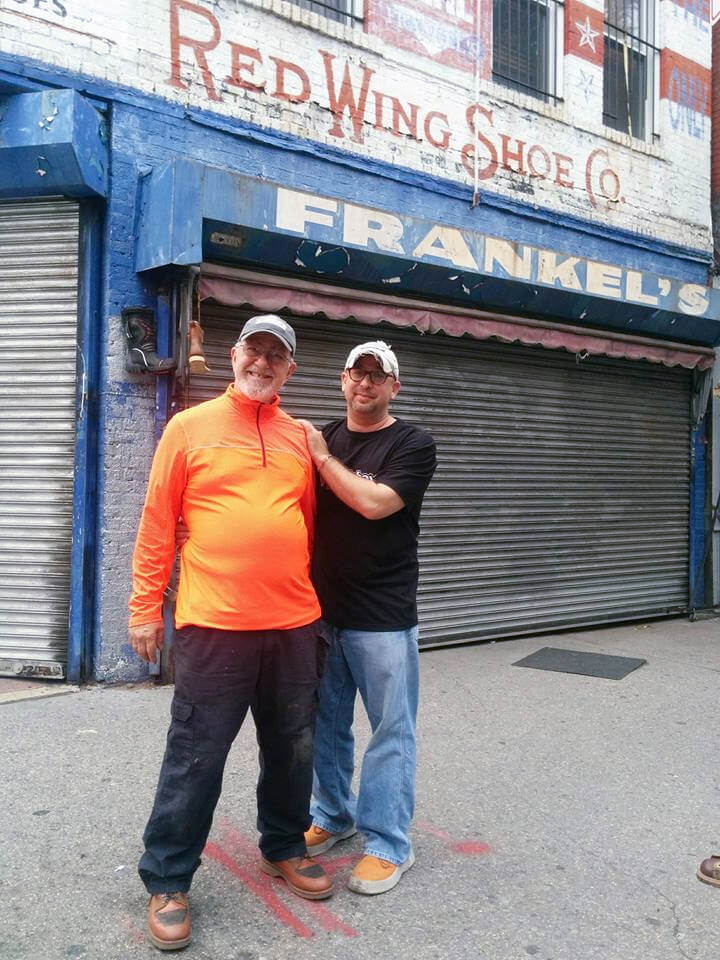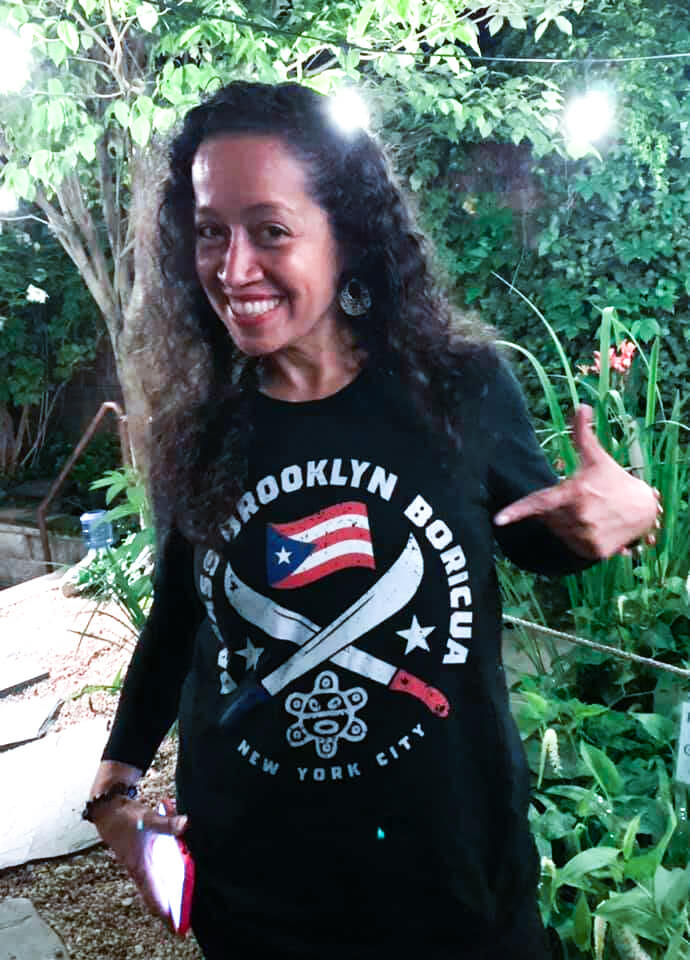In 2012, Hurricane Sandy wreaked havoc in our community. Basements were flooded, cars destroyed and power was out for almost a month – mostly at the Red Hook Houses,NYC’s second largest public housing project. That’s when Carlos Menchaca came to the neighborhood, dispatched by Kathleen Quinn, at the time Speaker of the City Council. He made himself familiar at the Houses, connecting local needs with government help. A few months after the hurricane, he announced a run for the seat against Democratic incumbent Sara Gonzalez. He won a surprising victory, and has served the maximum two terms the law allows. He chose not to make any endorsement for his successor, instead he ran for Mayor and then, as his campaign faltered, he started working for Andrew Yang.
In the meantime, Alexa Aviles, a program director for Scherman Foundation, a Manhattan non- profit, (currently on leave) dominated a large field of Democratic contendors, including the Chairperson of Sunset Park’s community board (the District 38 Councilmanic District includes not only Red Hook but Sunset Park as well). She will face Erik Frankel, a Sunset Park business owner, in the general election next month.
Q&A With Alexa Aviles, Democratic Candidate For District 38
BA: What are your thoughts and plans to address all the last-mile warehouses coming into Red Hook… Partially from a traffic safety standpoint with the kids in the schools and then also from a health and environmental standpoint.
AA: I think I think the first place to start is that I’m really in opposition to the fact that these last-mile warehouses were granted as of right permission to build right off clusters in Red Hook. I share the real concern and frustration about the negative impacts that these facilities are going to have on the community. I think from a short-term perspective there are a lot of meetings and I would like to follow the lead of the community voices here where we can, you know, mitigate some of the harm because it doesn’t look like we can certainly stop the ones that are already being built, right? So there have been demands to the Department of Transportation for a traffic study.
From my perspective, also, both the current and future council members should really work and demand that they use the waterways to reduce the number of trucks that will be in the neighborhood and also the possibility of demanding green trucks. We could try to mitigate some of the pollution coming from trucks given the incredibly high asthma rates that Red Hook already has. I think we’re going to have to figure out and work on some collective mitigation efforts with the neighborhood when we really have a clearer sense of what is going on. Hopefully, there will be a moratorium and there will be no more siting of these facilities in the neighborhood.
BA: Can you talk about your short-term and long-term goals?
AA: In terms of our short-term goals, we want to build an office that meets the needs of our constituents, our community members. And to really serve community members from all throughout the district, right from Chinatown, all the way to the Red Hood waterfronts and public housing residents in Red Hook.
We also talked a lot about budget, justice and really what that means is centering the needs of the residents in how we look at the budget and certainly what we are going to be fighting for. We want to serve everyone from public housing and immigration services to ensure that there are sufficient resources for trash pickup to meet our sanitation needs. These are two goals I’ll be working towards.
BA: Can you just tell me a little bit more about yourself, your background and who you are as a person?
AA: I’m a Brooklynite. While I was born in Puerto Rico, I grew up in East New York, Brooklyn, but I’ve been in the district for 20 years. My husband actually grew up in Red Hook and Sunset Park. He kind of moved back and forth, and that’s how I found my way to South Brooklyn, where we started our family as the parents of two public school students, one in middle school and one in high school. So we have been like many of the parents, nervous about this return that happened yesterday.
But I’ve worked in social justice movements and non profits for much of my career, both supporting non profits, doing advocacy and organizing work on a whole range of issues; everything from climate change to national reproductive rights work to organizing around affordable housing and land use. I’ve been on the community board and have been very engaged for a long time and in education and as a parent organizer, as a PTA president for many years, working with parents at my daughter’s school and the administration around how to support our residents on all kinds of things, everything from how we help children perform, achieve academically, right, but also children who are hungry. They won’t do well in school if they’re hungry. It’s everything from supporting families through job insecurity and immigration concerns, you know, food insecurity. So that’s been a lot of my work in the neighborhood, in the district. So I’ve been I’ve been working in the district for quite a long time and I’m truly honored to be in this position to both run a campaign, to really be embraced by community members and to really lift up the needs of working-class residents in our neighborhood.
BA: What people in Red Hook do you admire?
AA: Oh my goodness. You know, Brian, that’s like asking, you know, like, who is your favorite child? You’re going to get into some trouble here (laughing.) I guess I’ll just have to totally cop out here because I don’t want to just list a few people. I think Red Hook has its own flavor. And it’s a community that is very tight-knit and very vibrant. It has a New York City grit and resilience and really just deep love for each other and I really admire that. But there are too many people to name a favorite honestly.
BA: I hear you. I also wanted to ask how have you been able to manage having a campaign with being a parent combined with still having to deal with the pandemic?
AA: It’s a great question. I think exactly how we’re all managing, right? We’re working people who are active in our communities. So it means there’s what we do for work and there’s what we do for the community and there’s what we do for our families. So obviously, the volume here is significantly raised, because a campaign and certainly being an elected official is a very different volume of work. It’s kind of a 24-hour job. But I think I’m not different than any other parent who’s struggling to do the best that they can take care of their kids, protect the safety of their neighbors, you know, multi-tasking. And a good friend of mine told me the other day, you can only eat a Thanksgiving meal one bite at a time and so it’s just moving through the things you need to do on a daily basis and keeping your eye on the goal.
It’s hard. As a working mom, it’s always been hard. It’s always hard to balance. We’re driven by love and passion and by wanting the best for our community so that that keeps me energized when I’m feeling really tired. Every every day is a new miracle. When you’re managing all your competing things in your life, it’s tough, but humans are incredibly resilient and, you know, have a capacity for doing a lot.
BA: I’ll just turn it over to you now, is there anything else you’d like to add?
AA: I’m just really looking forward to, you know, working with the Red Hook community and really excited about the amount of activism in the neighborhood. We’re entering a new time and the challenges are complex, but I’m definitely bolstered and excited by working with the community. I challenge the issues and confront the things that we need for our communities. So stay tuned, folks!
BA: Thank you Alexa. I really appreciate you taking the time.
AA: Anytime, Brian, thank you again. I know it’s been tough schedules, really tough but thank you for, you know, being a voice for me to the community and from the community to me. Local media is so important for all of us and to get the stories of our community members out is really critical. We have a lot of incredible people in Red Hook with incredible knowledge. So I’m excited!
Q&A With Erik Frankel, Conservative Candidate For District 38
BA: How has your campaign been going and how have you balanced your campaign with being a father during the pandemic?
EF: Raising my son without his mother, running a small local business (Frankel’s) and international social enterprises while campaigning for office during the pandemic has turned my days into long nights. People who say kids grow up so fast have not been doing all this with a toddler. I have personally hung up almost all of my posters, managed my own campaign, gotten my own signatures, and have spoken to thousands of people. I do this because I want a better community, not only for my family but for the people who have been used as talking points by politicians and activists. I can not accept disingenuous politicians lying and cheating the people for personal gain.
BA: What are your thoughts on all of the last-mile warehouses that are moving into Red Hook?
EF: The Amazon warehouses are an unfortunate example of how politicians have turned against marginalized communities; the same communities they claim to represent. What’s worse is the community activists showed their true colors by not opposing the project.
The millions of dollars that are given to activists every month mostly end up wasted. Instead of trying to stop the construction, the politicians and activists made excuses about the definition of last-mile warehouses by calling them “as of right.” The politicians wanted the warehouses and because most of the community activists rely on the politicians for funding, the activists speak for the politicians and lobbyists and would never actually oppose them. It will create more pollution, traffic, accidents, crime and would contribute to the devastation of small family-owned businesses. It does not address the community’s main issue: lack of homeownership.
BA: What is one short-term and long-term goal you have for District 38?
EF: My short-term goals and long-term goals would be the same. I want to increase transparency and accountability for elected representatives. I want to stop the Equinor/Statoil assembly plant and use the land for our community’s benefit.
I want to close the homeless shelters and increase home-ownership for people in our communities. Without homeownership you will always be at the mercy of your landlord and the state. We can help the community by housing people in their own apartments and building affordable apartments in our community for people to own. It is nearly impossible these days to have equity without home-ownership.
BA: What do you want voters to know about you?
EF: I always say “If people knew what politicians were doing, they wouldn’t be doing it.” I will work for the community. I do not have the heads of wealthy foundations, nonprofits, lobbyists, or political groups supporting my campaign who demand something in return. If the people who vote knew who was behind the candidates I would win. Our community will only improve when the politicians work for the community, not the community working for the politicians.
BA: Is there anything else you’d like to say?
EF: They can’t buy all of us, we have a chance.










